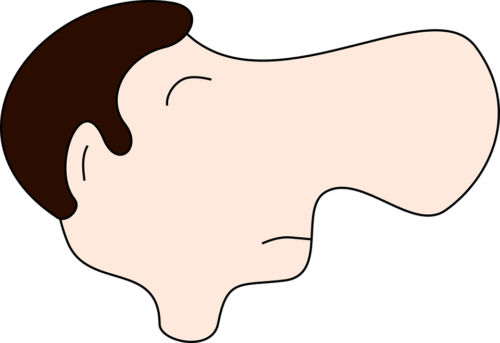People on the autism spectrum have different – and even opposite – reactions to odors produced by the human body.
These odors are ones that we are unaware of smell, but which are, nonetheless, a part of the nonverbal communication that takes place between people, and which have been shown to affect our moods and behavior.
Will you offer us a hand? Every gift, regardless of size, fuels our future.
Your critical contribution enables us to maintain our independence from shareholders or wealthy owners, allowing us to keep up reporting without bias. It means we can continue to make Jewish Business News available to everyone.
You can support us for as little as $1 via PayPal at office@jewishbusinessnews.com.
Thank you.
New research at the Weizmann Institute of Science suggests that the sense of smell may play a central role in autism. Their findings may provide a unique window on autism, including, possibly, on the underlying developmental malfunctions in the disorder.
Autism typically involves the inability to read social cues. We most often associate this with visual difficulty in interpreting facial expression.
Researchers in the lab of Prof. Noam Sobel in the Institute’s Neurobiology Department investigate, among other things, the smells that announce such emotions as happiness, fear or aggression to others. Although this sense is not our primary sense, as it is in many other mammals, we still subliminally read and react to certain odors. For example “smelling fear,” even if we cannot consciously detect its odor, is something we may do without thinking. Since this is a form of social communication, Sobel and members of his lab wondered whether it might be disrupted in a social disorder like autism.
To begin with, the researchers tested the ability of autistic to identify smells that can be consciously detected, including human smells like sweat.
They found no significant difference from that of the control group.
Two groups were then exposed to either to the “smell of fear” or to a control odor. The smell of fear was sweat collected from people taking skydiving classes, and control odor was sweat from the same people, only this time it had been collected when they were just exercising — without feeling fear.
This is where differences emerged: Their bodies reacted to each in a different way. In the control group, smelling the fear-induced sweat produced measurable increases in the fear response, for example in skin conductivity, while the everyday sweat did not. In the autistic men, fear-induced sweat lowered their fear responses, while the odor of “calm sweat” did the opposite: It raised their measurable anxiety levels.
Next, the researchers created talking robotic mannequins that emitted different odors through their nostrils.
The volunteers, who were unaware of the olfactory aspect of the experiment, received different tasks to conduct. The tasks were designed to evaluate the level of trust that the volunteers placed in the mannequins. The behavior of autistic volunteers was the opposite of the control group: They displayed more trust in the mannequin that emitted the fear-induced odor and less in the one that smelled “calmer.”
In other tests also, the autistic volunteers in the experiment did not display an inability to read the olfactory social cues in smell, but rather they misread them. Sobel and his group think that this unconscious difference may point to a deeper connection between our sense of smell and early development. Research in recent years has turned up smell receptors like those in our nasal passages in all sorts of other places in our bodies – from our brains to our uteri. It has been suggested that these play a role in development, among other things. In other words, it is possible that the sensing of subtle chemical signals may go awry at crucial stages in the brain’s development in autism. “We are still speculating, at this point,” says Sobel, “but we are hoping that further research in our lab and others will clarify both the function of these unconscious olfactory social cues and their roots in such social disorders as autism.”
The findings reported in Nature Neuroscience




